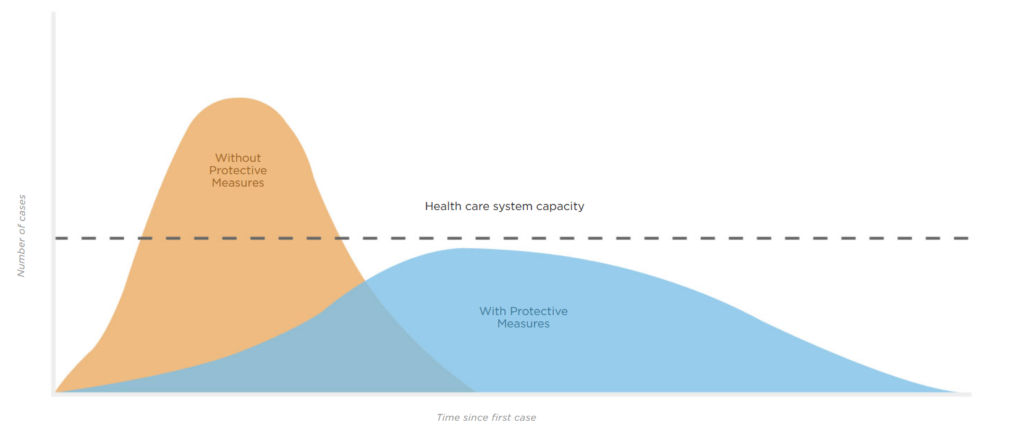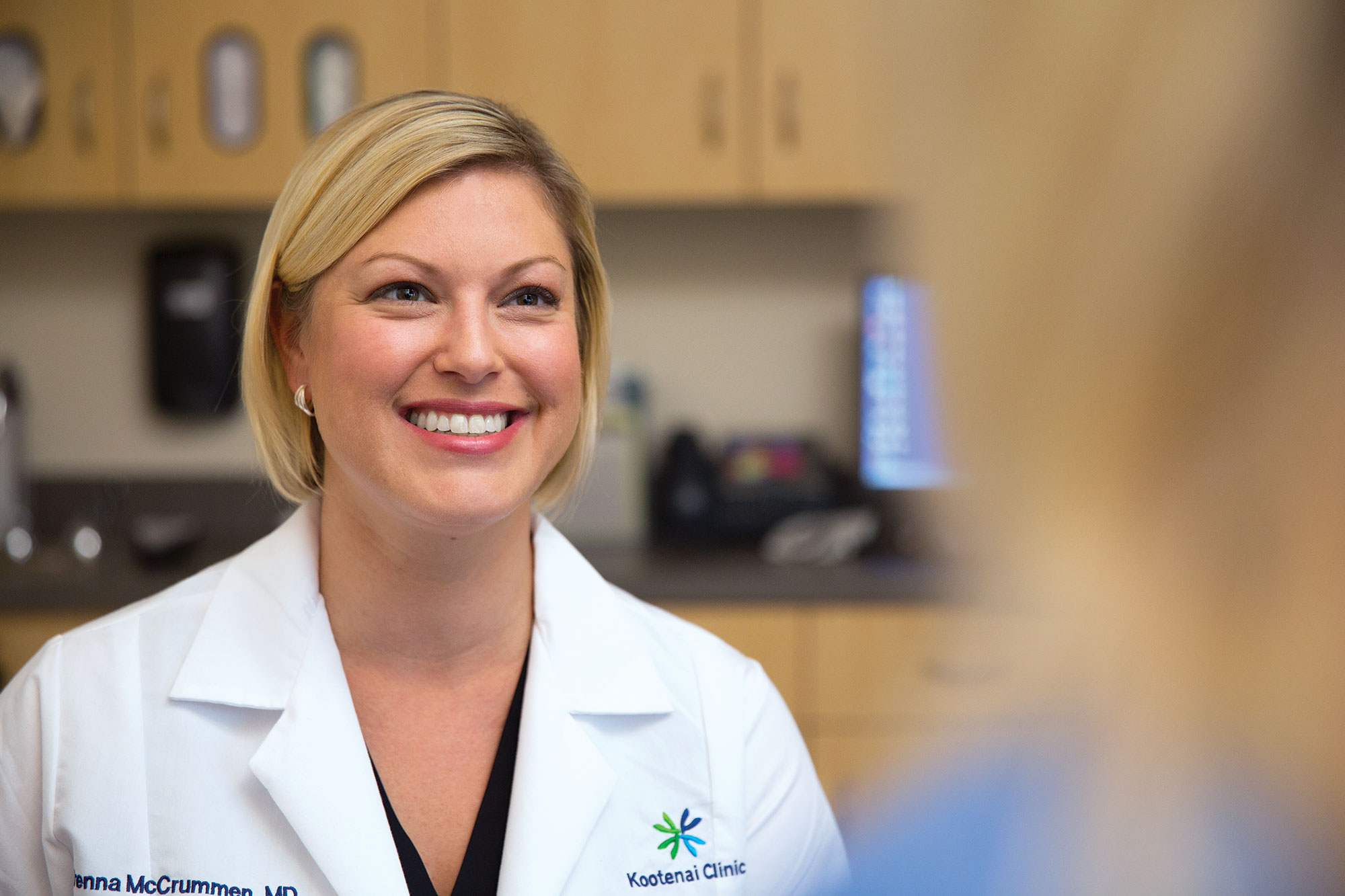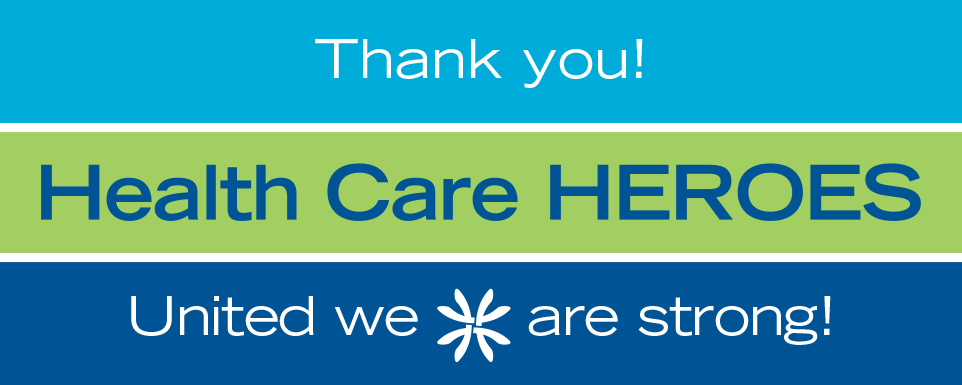How we as individuals can safeguard our health system from a sudden spike in COVID-19 cases.
For about a week now, the phrase “flattening the curve” has been referenced in several articles and news broadcasts, providing a strong visual for the end goal behind social distancing efforts. All of this staying home from work, school, and canceling social events are part of a bigger picture – a way to save lives and assist our hospitals and caregivers along the way.

The graph explained
In many countries such as China and Italy, COVID-19 hit hard and fast – causing a massive surge in patients. As the image shows, this sharp peak rises quickly. During this time local hospitals filled fast. Many had to make difficult decisions about who would receive treatment and limited resources, and who had to be turned away. When there is a finite amount of space and resources, such as protective equipment for staff and ventilators for the severely ill, only a few of those that need hospitalization can receive the ideal care they would receive under normal circumstances.
We are in a unique situation. With time to prepare and self-distance early-on, we can collectively change the course of illness in our community. The other “flat curve” section of the graph shows this alternative. By following the guidelines put forth by the CDC, White House officials, and your state and local health officials, we can mitigate this large surge of patients and help our local hospitals and testing facilities keep up with the demand for care.
How we make a difference – working together individually
The way we can make the biggest difference is somewhat of a paradox – by individually working together toward the same goal each of us is contributing to a bigger picture. To help in the effort every person should do the following:
- Wash your hands often with soap and water for at least 20 seconds. Use an alcohol-based hand sanitizer that contains at least 60 percent alcohol if soap and water are not available.
- Keep your family home and definitely stay home when you are sick. Avoid public areas and do your best to distance yourself from others.
- Do not travel. Although there has yet to be an official travel freeze, all experts suggest canceling non-emergent travel plans.
- Cover your cough or sneeze with a tissue, then throw the tissue in the trash.
- Clean and disinfect frequently-touched objects and surfaces.
“We keep hearing the term “flatten the curve” in the news coverage of the COVID-19 outbreak. What this means is spreading the number of people who may be sick at any given time out over a longer period of time,” Amy Ward, Kootenai Health Infection Prevention manager, said. “As this illness begins to spread within our community, remember to stay home and allow yourself to rest and recover there. Children and adults do not need to be seen at the physician’s office or hospital unless it is a medical emergency. Staying hydrated, focusing on good nutrition, and getting plenty of fresh air will also help to keep you healthy during these uncertain times.”
Effects for health care
Our combined effort will greatly slow the spread of COVID-19 in our area. Because it is a respiratory illness that can spread person-to-person or via hard surfaces, following the above guidelines will greatly reduce your exposure to the virus. By slowing the spread from person to person, fewer people will be sick at any one time, allowing our health care resources to remain stable and in supply longer.
“Although data is showing us that around 80 percent of individuals who have or have had COVID-19 will experience a mild illness requiring no hospitalization, 20 percent will experience more severe illness. It will take all of us working together to keep our vulnerable populations safe,” Lora Whalen, Panhandle Health District director, said.
Knowledge is power
Kootenai Health and the Panhandle Health District are actively working to share information about COVID-19 with our community. While there is no need to be afraid, being prepared is important. You can find the latest updates and ways to protect yourself at cdc.gov/covid19. If you have questions about COVID-19 or think you may have the virus, call the Panhandle Health District COVID-19 hotline at 1-877-415-5225.


